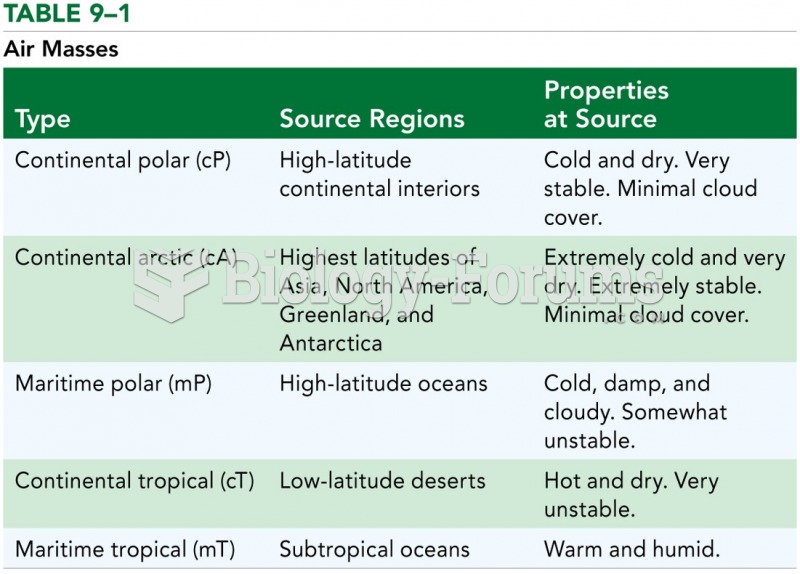|
|
|
Increased intake of vitamin D has been shown to reduce fractures up to 25% in older people.
Only 12 hours after an egg cell is fertilized by a sperm cell, the egg cell starts to divide. As it continues to divide, it moves along the fallopian tube toward the uterus at about 1 inch per day.
There are approximately 3 million unintended pregnancies in the United States each year.
If you could remove all of your skin, it would weigh up to 5 pounds.
When Gabriel Fahrenheit invented the first mercury thermometer, he called "zero degrees" the lowest temperature he was able to attain with a mixture of ice and salt. For the upper point of his scale, he used 96°, which he measured as normal human body temperature (we know it to be 98.6° today because of more accurate thermometers).







